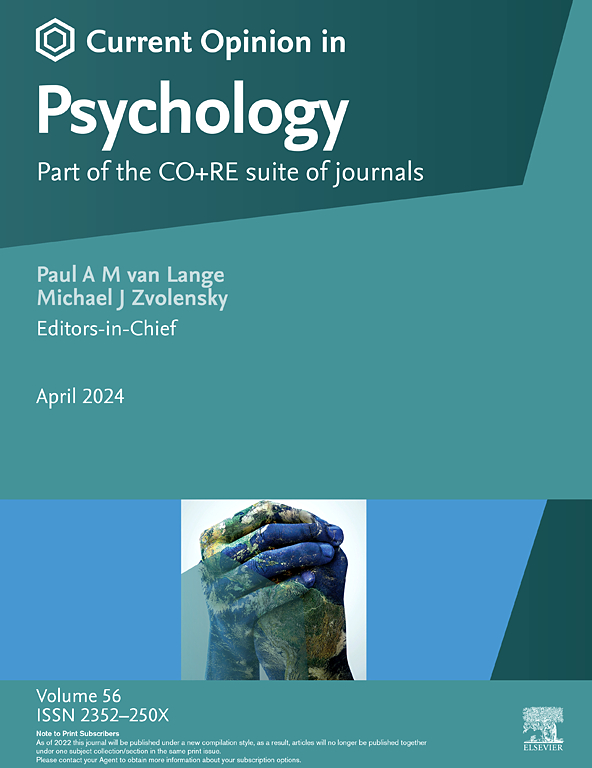科学和宗教的文化权威
IF 6.9
2区 心理学
Q1 PSYCHOLOGY, MULTIDISCIPLINARY
引用次数: 0
摘要
作为社会上最具影响力的两大文化权威,科学和宗教塑造了人们对真理和道德的看法。虽然科学经常与事实性知识联系在一起,而宗教则与道德判断联系在一起,但它们的界限往往是模糊和有争议的。这篇综述整合了社会学和心理学的见解,以研究科学和宗教如何在当代社会中维护、维持和失去权威。根据最近的实证研究,包括跨国比较、时间趋势分析和道德框架的作用,我们表明,对科学和宗教的信任依赖于环境,并受到制度环境、社会认同和道德共鸣的影响。我们认为,文化权威不是固定的,而是通过个人、机构和广泛共享的关于经验真理和道德价值观的叙述之间的相互作用而构建的。未来的研究应该涉及比较、交叉和道德维度,以更好地理解科学和宗教如何作为文化权威的竞争或互补来源发挥作用。本文章由计算机程序翻译,如有差异,请以英文原文为准。
The cultural authority of science and religion
As two of society's most influential cultural authorities, science and religion shape perceptions of both truth and morality. While science is often linked to factual knowledge and religion to moral judgment, their boundaries are often blurred and contested. This review integrates insights from sociology and psychology to examine how science and religion assert, sustain, and lose authority in contemporary societies. Drawing on recent empirical research, including cross-national comparisons, time-trend analysis, and the role of moral framing, we show that trust in science and religion is context-dependent and shaped by institutional settings, social identities, and moral resonance. We argue that cultural authority is not fixed but constructed through interactions among individuals, institutions, and widely shared narratives about empirical truth and moral values. Future research should engage comparative, intersectional, and moral dimensions to better understand how science and religion function as competing or complementary sources of cultural authority.
求助全文
通过发布文献求助,成功后即可免费获取论文全文。
去求助
来源期刊

Current Opinion in Psychology
PSYCHOLOGY, MULTIDISCIPLINARY-
CiteScore
12.10
自引率
3.40%
发文量
293
审稿时长
53 days
期刊介绍:
Current Opinion in Psychology is part of the Current Opinion and Research (CO+RE) suite of journals and is a companion to the primary research, open access journal, Current Research in Ecological and Social Psychology. CO+RE journals leverage the Current Opinion legacy of editorial excellence, high-impact, and global reach to ensure they are a widely-read resource that is integral to scientists' workflows.
Current Opinion in Psychology is divided into themed sections, some of which may be reviewed on an annual basis if appropriate. The amount of space devoted to each section is related to its importance. The topics covered will include:
* Biological psychology
* Clinical psychology
* Cognitive psychology
* Community psychology
* Comparative psychology
* Developmental psychology
* Educational psychology
* Environmental psychology
* Evolutionary psychology
* Health psychology
* Neuropsychology
* Personality psychology
* Social psychology
 求助内容:
求助内容: 应助结果提醒方式:
应助结果提醒方式:


